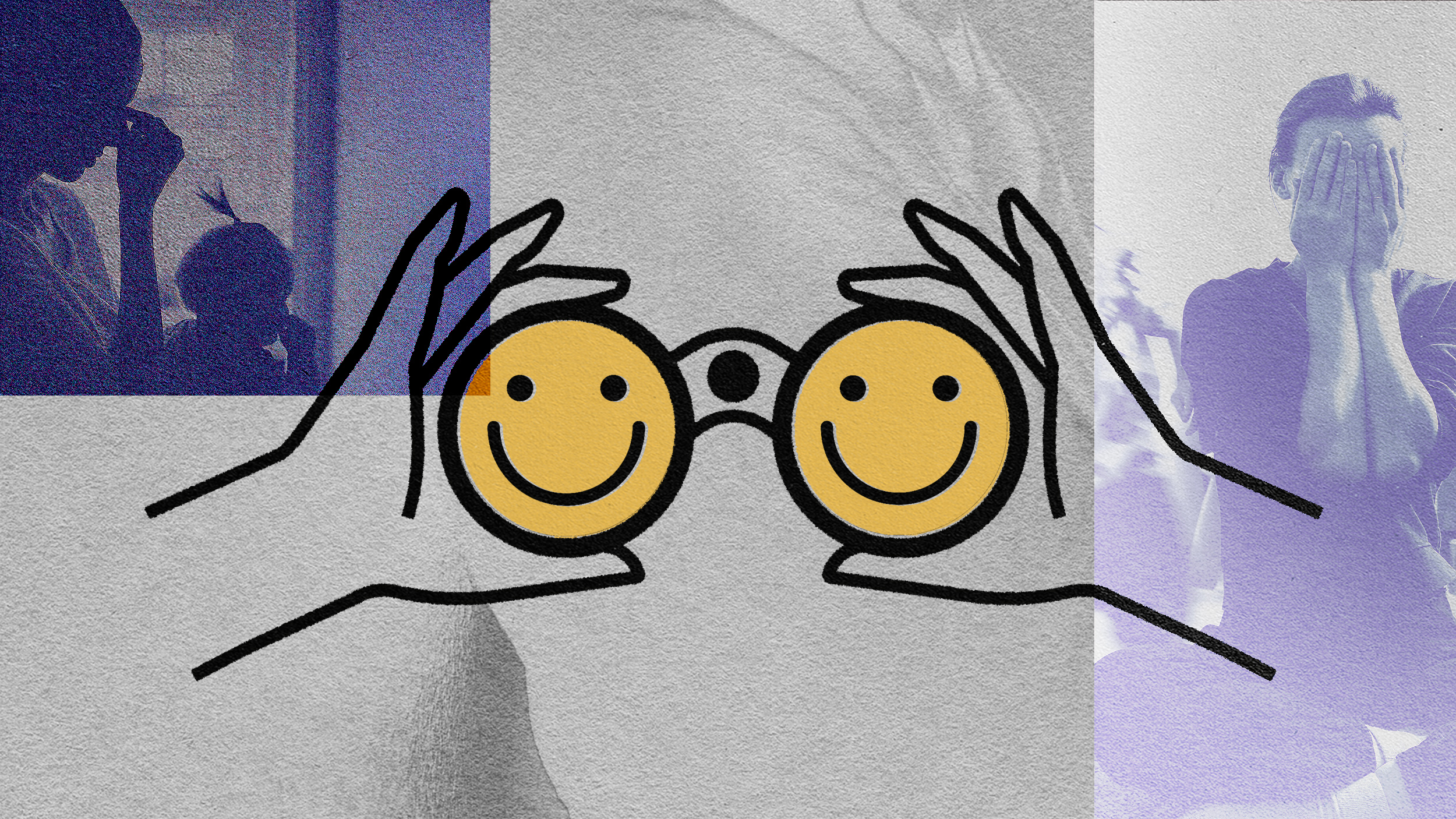What’s behind a science vs. philosophy fight?

This is the 3rd diablog with Rebecca Newberger Goldstein (here’s the1st, and2nd).
JB: Scientists and philosophers are skirmishing, again. Philosopher James Blachowicz writes that “There Is No ScientificMethod“—the sciences just do what any field of “systematic investigation” does—and the “highly quantified” approach of the sciences shouldn’t be “confused with a superior method of thinking.” And that provoked Chad Orzel to explain “Why Physicists DisparagePhilosophers.” Orzel says that philosophy, and the humanities generally, exhibit “a comprehensive failure to build on prior results.”
Rebecca, you’ve worked on how philosophy and science relate—what strikes you about this tussle? In your book Plato at The Googleplex: Why Philosophy Won’t Go Away you call out “philosophy-jeering” scientists like Lawrence Krauss, who claims “science progresses and philosophy doesn’t.” What are philosophy-jeering scientists not seeing? And what are philosophers failing to make clear?
RNG: Philosophy-jeering scientists think that philosophy fancies itself as a competitor to science. They think that philosophers imagine that they can reason their way toward the kind of knowledge that the sciences test their way toward. Now whatever it is that philosophy is trying to do (and it’s notoriously difficult to make this clear) it isn’t trying to compete with the empirical sciences. If it were, it would be just as deluded as the philosophy-jeerers say it is.
JB: So this is a mistaken turf war—an illogical mix up over the relevant roles of reasoning and testing?
RNG: It’s a bit more complicated. After all, scientists would assert, quite justifiably, that they’re employing reasoning as well. In fact, most of the scientists I know are strictly theoretical. They don’t dirty their hands with experimental testing. But a sine qua non of a theory’s being scientific is that, ultimately, it’s got to be put to an empirical test. Science, with its grab bag of different techniques, is the ingenious means we’ve discovered for prodding physical reality to answer us back when we’re getting it wrong. In this way, science has been able to correct some of our deepest intuitions about space and time and causality and locality (physics) or about the way that intentionality functions in the explanation of living things (evolutionary biology). And a good part of the reason why philosophy-jeerers presume that philosophy must be trying to compete with the physical sciences is that they just can’t imagine any useful intellectual work that doesn’t lead to knowledge as they know it, which is knowledge of physical reality achieved by way of the empirical sciences, with a methodology requiring that theories, no matter how abstract, ultimately be subjected to testing so that our wrong-headed intuitions can be corrected.
JB: There certainly are reliable truths that can be known by reason alone—like the mathematics that scientists love to lean so heavily on.
RNG: Mathematics is a prime example of non-empirical knowledge that is, unassailably, knowledge. But its aprioricity comes at a price—namely its truths are all necessarily true, which means they describes all possible worlds, and therefore don’t give us knowledge about our specific world, the way the sciences do. The sciences use mathematics to express their truths, but the truths themselves are discovered empirically. This is why mathematicians are so much cheaper for universities to employ than scientists. They don’t require laboratories, observatories, particle colliders. They carry all their equipment in their craniums. All the university has to supply are blackboards, chalk, and erasers. And philosophers are even cheaper (according to an old joke), because they don’t even require the erasers. A funny-ish joke, if also a philosophy-jeering one, since it lands the dig that philosophers can say whatever the hell they want, that there’s no self-correcting methodology. But, again, this is to misunderstand the nature of the enterprise, and the kind of progress that philosophy makes.
Philosophy isn’t just another branch of the empirical sciences; nor is it a branch of a priori knowledge. So then what is it? Of course, this whole way of clarifying the confounding position of philosophy itself depends on the fundamental epistemological distinction between a priori and a posteriori (or empirical) knowledge; and epistemology, or the theory of knowledge, is a fundamental branch of philosophy. People like Orzel don’t realize how much they’re depending on previous philosophical work even in order to scoff about philosophy’s never getting anywhere, never building. What about building the kind of epistemological foundations that made the emergence of the sciences possible? One of the great difficulties in spotting the kind of progress that certain branches of philosophy have made—in this case epistemology—is that we aren’t seeing the philosophical progress because we’re seeing with it. It’s penetrated deeply into our conceptual schemes.
JB: It’s worth considering what the limits are of the dominant conceptual scheme of the sciences. For example, can we rely on the “highly quantified” approach that scientists use so skillfully (= algebraically expressed theory + data) to address all the questions that matter? If not, perhaps we shouldn’t discount other thinking tools and techniques. Perhaps, scientists aren’t the only expert reasoners.
RNG: I think that underneath what seems to be the failure of imagination of philosophy-jeerers in dismissing any form of useful intellectual work other than their own is (to give them the benefit of the doubt) an argument along these lines: Given that (1) all that there is is physical reality, and that (2) science is our best means for learning the nature of physical reality, it follows that (3) the only kind of substantive intellectual work there can be is scientific. This is a fallacious argument. Even granting the two premises, the conclusion doesn’t follow. What philosophers have failed to make clear is the nature of the invalidity of this argument, which is also to say that they’ve failed to make clear what this other kind of intellectual work that they do is, and why it’s work that’s so necessary that even the philosophy-jeerers must engage in it in order to make their philosophy-jeering arguments.
JB: So, the philosophy-jeerers mistakenly imagine that they don’t need philosophical thinking. As Massimo Pigliucci like to remind us, Daniel Dennett usefully says “there’s no such thing as philosophy-free science.”
RNG: Yes, after all, both premise (1) and premise (2) are substantive philosophical claims that require philosophical arguments. Premise (1) requires an argument against all forms of metaphysicalidealism, as well as against skepticism, as well as against theism, as well as againstmathematical realism (the view that mathematics describes a non-physical realm of abstract entities). And premise (2) requires an argument forscientific realism—the view that our scientific theories are descriptive, meaning that they discover truths about an independent physical reality, rather than being just elaborate instruments for predicting experiences (scientific instrumentalism)—as well as an argument against various forms of scientific skepticism. So in the yawning gap between those two premises and the conclusion is a ton of required philosophical work that would, in justifying the premises, render the conclusion demonstrably false.
JB: I’m reminded of David Sloan Wilson’s observation that “philosophy gave birth to the sciences and parental care is stillrequired” and that “it is the job of philosophers to think clearly about concepts.” That’s a yawning chasm from biologist Jerry Coyne’s response to Blachowicz—“Neither philosophy nor poetry are ‘ways of knowing’… it’s not the business of either to findout truth.” And I’m particularly interested in philosophy’s practice of rigorous non-numeric logic. The “highly quantified” thinking that Blachowicz says scientists typically rely on, doesn’t seem to capture all useful truths (they’re not all in “thenumbers”). And hard though it may be, can you say more about what philosophers seek to do?
RNG: Well, before going on to say what it is that philosophy does, the kind of intellectual work it performs, I’d like to spend a bit of time with Coyne’s statement, because it so beautifully demonstrates what philosophy-jeering scientists don’t get. I’m surprised that Coyne, who understands his own field, evolutionary biology, so well and gets quite annoyed when outsiders lodge non-sophisticated objections against evolution, would make such a non-sophisticated statement about another field. I suspect it was made in haste, before he’d thought through the implications.
JB: Please, do point out Coyne’s hasty misstep.
RNG: Coyne’s statement would be absolutely correct if it were understood to read: “It’s not the business of either [philosophy or poetry] to find out truths about physical reality.” Coyne would be on safe ground there, damnably safe, because that statement isn’t only true but trivially true. It’s about as informative as saying that it’s not the business of firefighters, qua firefighters, to choreograph ballets (especially with their full gear and boots on). But if you don’t understand Coyne’s statement to be asserting this trivially true proposition, then what you have is a proposition that’s not only false but self-falsifying, because it is itself a philosophical claim. So if it’s true, then it’s false, which is just about as false as you can get. Coyne has demonstrated, in only a couple of sentences, the philosophy-jeerer’s tendency to bumble his way into philosophy without realizing it. And this is because of the difficulty in making clear what it is that philosophy does.
JB: So philosophers know they’re not doing science, but some vocal scientists don’t know they’re doing philosophy! And that brings us back to what it is that philosophy does.
RNG: Perhaps the most effective way to try to say what philosophy does, and how it makes headway, is to simply point to an example of philosophical work. And we have an example close to hand, because what I was just doing, in going to work on Coyne’s statement, was a paradigmatic philosophical exercise: closely analyzing what a proposition could mean, distinguishing various possible meanings, each with its own corresponding truth-conditions, and then showing that, under the analysis, the proposition collapses into incoherence. The pursuit of maximum coherence is the best way I know of expressing the overarching goal of philosophy.
The kind of progress philosophy is after isn’t the same as the progress sought by the empirical sciences, namely to discover the nature of physical reality. And it isn’t the same as the progress sought by mathematics, which aims to discover conceptual truths about abstract structures. Rather, it’s a kind of progress that has to do with us, the complicated reason-giving creatures that we are. Philosophy is trying to maximize our coherence. We are creatures who happily coexist with many inconsistencies, and it’s the business of philosophy to make that coexistence a less happy one. Philosophers pay careful attention to what’s being asserted, separating out different possible meanings with their associated truth conditions, forcing hidden premises out into the open and probing the arguments and intuitions behind them, laying out the range of possibilities revealed when you’re forced to justify your inferences, which often reveal new possibilities that are worth pursuing in their own right. And sometimes these possibilities feed new scientific research (as philosophical analysis opened the way for interpretations of quantum mechanics beyond the “Copenhagen interpretation” of Niels Bohr) or even mathematical research (the incompleteness theorems of Kurt Gödel are a good example) or they help us to make moral progress, as when our general ethical intuitions concerning the rights and dignity of human beings were philosophically demonstrated to be incompatible with, say, the practices of slavery. Maximizing coherence has been the job description of philosophy ever since Socrates wandered the agora making a general nuisance of himself by subjecting his fellow citizens to the kind of interrogation that revealed their inconsistencies and incoherencies. It’s not surprising that the reductio-ad-absurdum was the form of argument to which Socrates most frequently resorted, and it’s distinctively of that type of reasoning that you call non-numeric logic. And it’s useful intellectual work to do, this attempt to maximize our coherence, at least if you value truth, as the philosophy-jeerers so clearly do.
JB: Agreed, there’s much to be gained from increasing the coherence of the ideas and thinking tools we use. Much that matters isn’t easily measurable, or entirely objective. We can’t always rely on those skilled in thinking styles whose signature move is to jump to the numbers and to use algebra as soon as they can. And that reminds me of two relevant quotes. Contra Coyne, E. O. Wilson says “scientists should think like poets and work likeaccountants” (Wilson sees how science and poetry both build on precise metaphors). And Leon Wieseltier reminds us that “reason is larger thanscience.
Illustration by Julia Suits (author of The Extraordinary Catalog of Peculiar Inventions, and The New Yorker cartoonist) with modifications by Jag Bhalla.





